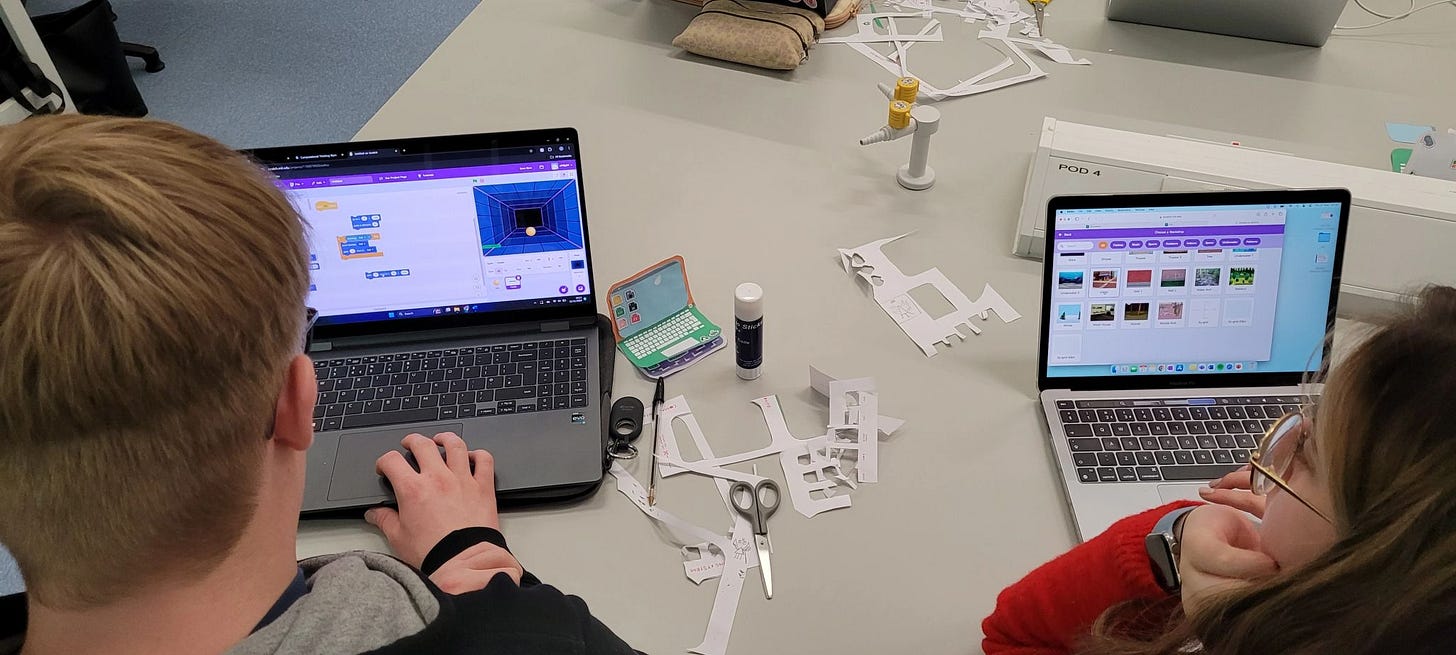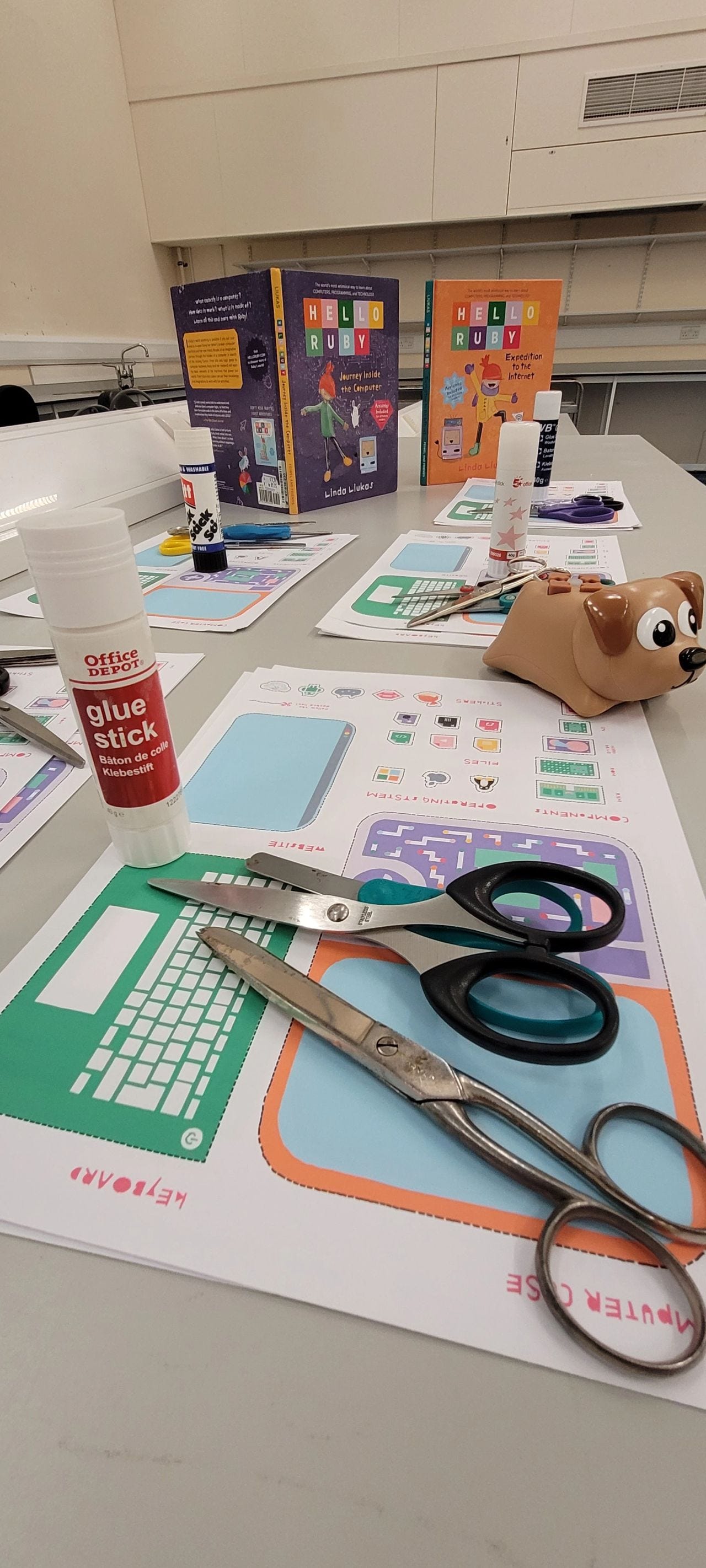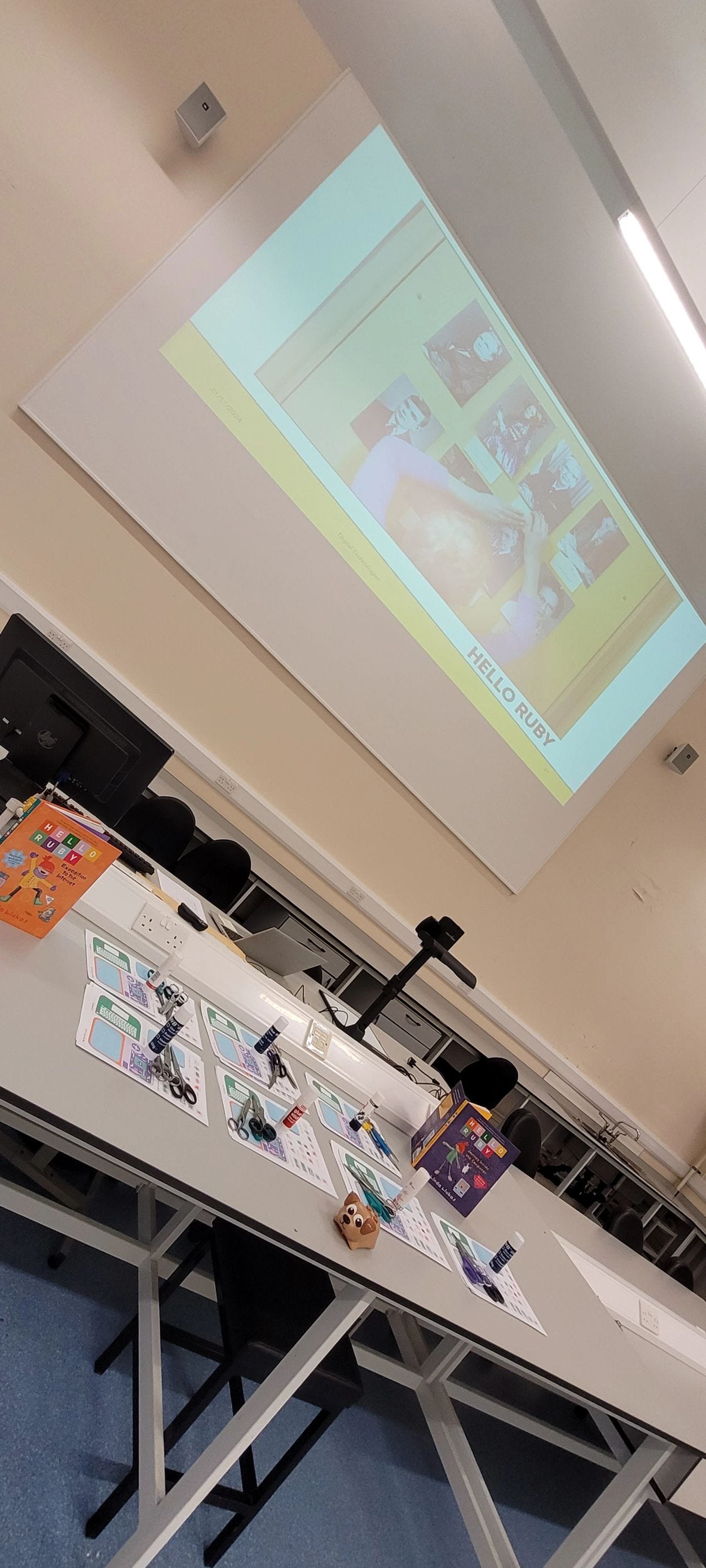No. 89 — A Playground Worth a Thousand Programmes ⫶ AMA ⫶ Le Jardin Robo
a reputation for gentle eccentricity
My name is Linda. I write a bi-weekly newsletter about computer science, childhood, and culture.
The beyond tellerrand talk in Berlin, A Playground Worth a Thousand Programmes, is now online! It’s a 40-minute distillation of everything I’ve learned while designing a playground for computing—a project equal parts tangible and conceptual, as much about slides and swings as about algorithms and questions.
Julia’s remarkable live-drawn notes are here. "I sometimes wonder how much burnout we could avoid if we could also work with our whole body and not just a few fingers, our eyes fixed on a laptop."
And the truth is... I suspect a lot.
Time for an annual Q&A. These Q&As have been a lovely way to reflect, notice how I’ve changed, and respond to professional questions. If you have questions, you can reply below or shoot me an e-mail. I’ll keep questions anonymous and use the first letter of your first name. So, ask me anything!
Here are 2023, 2022, and 2021.
Linked List
In computer science, a linked list is a linear collection of data elements whose order is not given by their physical placement in memory. But here it is a selection of things I’ve been reading lately.
My favorite Instagram account at the moment is Le Jardin Robo. I save just about every post.
Finished both Super-Infinite: The Transformations of John Dunne and Impossible Creatures and am completely mesmerized by Katherine Rundell’s talent. “At 37, Rundell has an air of perpetual delight, a thesaurus-level vocabulary, a deep passion for the natural world, and a reputation for gentle eccentricity. “
“Computers happened not because of Charles Babbage, but because of the invention of electronically-controlled intermediate data storage.” It is a thorough retelling of computing history through the perspective of memory. I love the Internet for allowing pieces like this to exist.
Classroom
I’m hoping to surface and share stories from all of you and I’d love to see your creations! Here are a few teachers using Ruby in creative, fun and inspiring ways.
Andrew from School of Education at University of Aberdeen shared these wonderful stations prepared for student teachers. It was a perfectly timed message on a snowy Tuesday.





In your talk you mention Maria Montessori. And it made me wonder: What would the equivalent of the "Montessori Manipulative's" for computer science learning? One idea I had tonight was using physical paper to represent data encoding - and someone had done that: https://hackaday.com/2016/02/22/punch-card-reader-for-the-10-types-of-people-in-the-world/